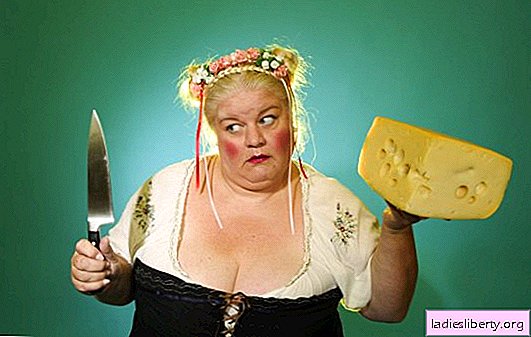
Holidays January 28
Army Day in Armenia
The state power of the Republic of Armenia made a decision and created the State Defense Committee, this event dates back to 1991. After that, according to the decree of the President of Armenia, Vazgen Sargsyan was appointed to the post of Minister of Defense. Twelve months later, the project was finalized, and the National Army was organized on the territory of the Republic of Armenia. Vazgen peculiarly characterized this historical event and announced that Armenia had to, in a fairly short period of time, undergo many serious tests, which consisted of terrible wars and a conflict-free army construction. This historical period only tempered the Army, thanks to which it became a real subject of pride and veneration. If we talk about different historical factors that influenced the formation of the Armenian army, three main stages should be distinguished. Initially, Armenia and Azerbaijan were at the center of the conflict. At that time, volunteers who were united in groups were responsible for the country's security. The second stage is the creation of a national army in war. After this, the time came for the third stage, by the way, it is not completed in our days. This period can be called "army construction." According to the Minister of Defense, peaceful conditions make it possible to focus on the development of various branches of the armed forces, and allow for the strengthening of the connection that exists between the army and public representatives. Currently, active work is underway to improve the living conditions of those liable for military service. In 2007, a holiday was organized in Armenia, which was dedicated to the fifteenth anniversary of the founding of the national Army. According to experts, Armenia is in a place of honor among the other, most combat-ready subcomplexes of this region. Based on this, the government and citizens of the country have something to be proud of, and what to strive for in the future.
Fragrant Pagoda Festival
The festival is held every year, the celebration begins on the fifth day of the first month according to the lunar calendar, and ends at the end of the 3rd lunar month. This festival is considered the longest holiday in Vietnam, it is celebrated for two months. The fragrant pagoda is one of the oldest Vietnamese Buddhist shrines. It is located in the province of Khatai, 65 km from Hanoi. Every year for three months of spring, it becomes a center of Buddhist pilgrimage from all parts of Vietnam. Having visited her at the beginning of the Lunar Year, it is necessary to offer prayers in this holy place to God for themselves and, of course, for relatives and friends. It is generally accepted that in this way people will be able to protect their family from unclean spirits, and for a whole year good forces will provide support in all endeavors. The pagoda was founded in the fifteenth century. Nowadays, this is not just an ordinary temple, but a large complex, which consists of mountain and cave pagodas and tombs, this holy complex is considered one of the most significant historical monuments in Vietnam. In addition to the many pilgrims, the famous pagoda is visited by many tourists. Each year up to 600 thousand people visit this historic complex.
January 28 in the folk calendar
Pavlov day
The holiday was given such a name in memory of the church holiday, which is called - Memorial Day of St. Paul of Thebes. It is known that Paul of Thebes was the first Christian monk. According to legend, he lived in complete hermitage for 90 years. He ate dates and bread, a raven brought them to him, and when it was cold, he covered himself like a blanket with palm leaves. According to life, Paul gave his soul to God during holy prayer, this happened in 341. The people of this day had another name, this day was called the Day of sorcerers. Peasants believed that it was on this day that the healers and sorcerers had the opportunity to transfer their strength to their students. However, this was fraught with various troubles for ordinary people, because the students had to test the received strength. Knowledgeable people advised to defend themselves in Pavlov day from damage and negativity. To do this, people took appropriate precautions, these were church rituals and pagan. Peasants on this day more often prayed, knocked on a tree, spat on their left shoulder, in general, were more superstitious than usual. On Pavlov’s day, people noticed that the day was beginning to increase, the night was becoming shorter and the sun was shining much brighter, this indicated that winter was on the wane. People watched the weather that day. If stars shone in the sky, it means that there will be frost on that day. If clouds were visible in the north, thaws need not be expected. On this national holiday, peasants tried to predict what the summer would be like: if the sun was shining, summer would be hot, if the wind was blowing, it would be cold in summer, and if it would snow, peasants would wait for a rainy summer.
Historical events of January 28
January 28, 1077 victory of the pope over emperor henry iv
The so-called Kanos humiliation or going to the papal throne to repentance, this is an instructive case in the history of medieval Europe. The cause of the precedent was the struggle of the Holy See with the wayward and independent emperors of the names of the Holy Roman Empire. In this confrontation between political and church authorities, the religious faction, represented by Pope Gregory VII, won. Taking advantage of the ignorance and religious fanaticism of the medieval inhabitants, the High clergy manipulated not only the masses of people, but also the leaders of states: emperors, kings, kings and princes. The conflict between the German emperor Henry IV and Pope Gregory VII, erupted on political grounds. The Papal Court was not satisfied that Henry appointed his people to high state and church posts. The pope tried to excommunicate Henry. Ultimately, the victory in the confrontation was won by Pope Gregory VII. Pope betrayed Henry anathema for life, freed his vassals from the oath given to the emperor, which actually deposed Henry as sovereign. In a difficult political and religious moment, Henry, as head of state, lost his vigilance and courage, in addition, church propaganda of that time did not leave any chances that the Pope disobeyed to get to heaven after death. Henry IV, stood at the head of a powerful state, had a huge battle-worthy army, if he had not succumbed to the Papal trick, he would have dared the whole Papal region, and the Papal residence and rebellious vassals with his army, this could have ended the history of Catholicism in Europe . But instead of decisive action, the emperor goes to bow to the Pope in order to beg forgiveness from him. However, he was allowed into the Papal Castle, only three days later, there, in Canossa, barefoot, in a beggarly robe, in tears, he asks for forgiveness from the Pontiff and receives it. However, the struggle of the European monarchs with unlimited papal power did not end there. At the beginning of the 14th century, the French king Philip the Beautiful captured the Pope in Avignen, there, on French territory, the Pope was more loyal and not as obstinate as before. Later, the Pope nevertheless returned to Rome, but never had the former power and influence on the states of Europe.
January 28, 1897 created diesel engine suitable for mass production
On February 28, 1892, the inventor and physicist, Rudolf Diesel, patented the production of single-cylinder and multi-cylinder engines. In the future, the date of January 28, began to be celebrated as the day the diesel engine was created. During this period, the diesel engine successfully tested the internal combustion engine in action, a device was built in it that ignited the liquid fuel. The new engine at cost cost half the price than other types of devices. Rudolph Diesel, also, tried to translate into reality the theory of the heat engine, which was proposed by the French inventor Nicola Carnot, but later Diesel significantly moved away from Carnot's theory. Only the principle of high internal pressure remained not base. Rudolph worked on the creation of a diesel engine for about seventeen years. The first enterprise to launch new diesel engines was the Augsburg plant, and in the future it will be called the "MAN concern". In Russia, for the first time, a diesel engine was designed and manufactured in 1899, in St. Petersburg, at the Ludwig Nobel plant. The design and technical capabilities of the Russian engine are still considered the best in the world. The fate of the Rudolph Diesel diesel engine turned out to be much happier than its creator. It is known that Rudolph Diesel disappeared without a trace during a trip from Antwerp to London.
January 28, 1906 the first Russian Polytechnic Institute for women opened in St. Petersburg
In January 1906, the first in Russia, a higher polytechnic educational institution for women, opened in St. Petersburg. The history of higher education for women began in Russia at the end of the 19th century. The first higher educational institutions for women were those opened in St. Petersburg and Moscow, Alarchinsky and Lubyansky higher education courses. Here, women could receive higher medical education. The initiators of the creation of such educational institutions were: the Government of Russia and the Russian scientific community. In St. Petersburg, there were cash desks for raising funds for the development of female education, and many banks opened accounts for donations. The public also contributed to the development of educational institutions where women could receive agricultural education. In 1879, in Kazan, higher education courses were organized for women who wanted to study history and philosophy. And in Moscow at the same time a higher school was organized for women who decided to devote themselves to physics and mathematics. At the beginning of the 20th century, women's schools and courses were organized in all corners of the vast Russian empire. By 1912, about 25,000 female students were enrolled in higher education courses for women, of which more than half studied in Moscow and St. Petersburg. After the Bolshevik revolution, all women's courses were liquidated, and women were given the right to enter higher education institutions of any profile, on a par with men. So women were equalized with men in the education sector.
January 28, 1986 the Challenger tragedy
At the time of the launch of the American spaceship Challenger, in the area of the cosmodrome in Florida, it became abnormally cold, the air temperature dropped to -27 degrees. Design engineers of the Morton Tayokol company asked to postpone the launch of the ship. Experts feared that solid fuel from the cold would harden and lose its ductility, and the density of the missile grooves would be violated. However, NASA insisted on launching the shuttle, and the launch was still made. The purpose of the flight was to launch a communications satellite into Earth orbit, the cost of which exceeded one hundred million dollars. In addition, astronauts had to make a spectral analysis of Halley's comet, measure the level of radiation in all compartments of the ship. A feature of the crew was the participation in the space expedition of primary school teacher Christina MacAuliffe, she was supposed to conduct a lesson from space to students of her class. The teacher was supposed in her space lesson to tell the children about the work of the spacecraft, to introduce the students to the crew. The launch was carried out on January 28, 1986 at about 12 noon, there were seven astronauts on board. However, the flight did not last even two minutes. At an altitude of fourteen kilometers above the surface of the Earth, the Challenger suddenly exploded, and its wreckage fell into the Atlantic Ocean. Witnesses of the terrible tragedy were the students of Christina MacAuliffe, who came to accompany their teacher on a space trip. The government commission established the cause of the disaster, the tragedy occurred due to the rupture of the sealing rings encircling solid fuel, this was facilitated by hot gases and unusually low air temperature. What happened actually, and experts warned, on the eve of the launch.
January 28, 2003 mayonnaise-based biofuel invented in Britain
On January 28, 2003, retail sales of biofuels began in Britain, which partly consisted of the same elements that make margarine and mayonnaise. New fuel could be bought at Sainsbury's ordinary supermarkets. The production of a new environmentally friendly fuel was undertaken by the Greenwich concern. The basis of the innovative fuel was gasoline with a particularly low sulfur and ethanol content, but with a high percentage of rapeseed oil. According to the developers of the new fuel, its use reduces harmful emissions into the atmosphere by as much as 5%. Biofuel is relatively cheap to produce, and therefore cheaper than regular gasoline, in addition, its consumption for a car also becomes much cheaper than benzene. It can be freely used for refueling cars of any class and modification. However, the British media harshly criticized the innovation. As well-known news agencies said, we cannot talk about safe fuel, we can only talk about a slight reduction in harmful emissions into the atmosphere, because 5% is not a solution to the environmental problems of the Earth. But manufacturers are confident in the success of their enterprise, the inventors of biofuels said that if all or most motorists switch to using new fuel, then in the total calculation this will significantly reduce the total harmful emissions into the atmosphere. Now the development company is hoping for government approval and significant tax benefits. It’s also worth mentioning that since the invention of the first biofuel in 2003, its production technology has improved significantly and now some of its brands reduce harmful emissions into the atmosphere from 10 to 20%, perhaps in the near future these figures will increase to 50%, and future and up to 90%.
Born on January 28
Mikhail Romanov (1798 - September 9, 1849), Grand Duke
Grand Duke Mikhail Romanov was born on January 28, 1798, in St. Petersburg, and became the fourth son of the imperial couple Paul I and Maria Fedorovna. He was a younger brother, future emperors Alexander I and Nicholas I. Misha was a big favorite in the royal family, was psychologically strongly attached to his older brother Nicholas, and over the years their brotherly friendship grew stronger. Misha maintained good relations with his brother Konstantin. Michael by nature was a demonstrative person, for example, in the presence of the military, he behaved strictly and importantly, but generously, but in his heart he was kind and gentle. In the military field, Mikhail proved himself a brave and experienced general, he took part in the Patriotic War of 1812. In 1820, Mikhail created an artillery school in St. Petersburg. At his insistence, a officers' school was founded in Tsarskoye Selo, where they trained instructors in small arms skill for army regiments and guards. The Grand Duke made a significant contribution to the development of artillery in Russia. He did not show much interest in public affairs, preferring the role of a close friend and ally of his reigning brother.Despite his strong physique, Mikhail, however, was in poor health; at the age of 51, he unexpectedly died from a stroke that broke him.
Arthur Rubinstein (1887 - December 20, 1982), outstanding pianist
Arthur was born in the large Polish city of Lodz, January 28, 1887. From childhood he began to show interest in music, and from the age of 8 he began to study music in Berlin. His teacher was Heinrich Barth - a student of Franz Liszt. For the first time, Arthur addressed the public at the Berlin Philharmonic, with a symphony orchestra. At first, critics met the young pianist rather restrained, rather even cool. The first successes and recognition came to the young musician in the 1920s, and after a tour in the United States, his popularity grew quite significantly. In 1941, fearing fascist persecution, Rubinstein moved to the United States, and after the war he returned to Europe and settled in France. Arthur Rubinstein became famous mainly as a talented performer of the works of great composers, Fredrik Chopin, Franz Liszt, Robert Schumann, Johannes Brahms. He performed the works in an elegant but at the same time bright tone, among many pianists, Rubinstein was distinguished by a rich architectonics. The musician recorded many of his concerts on phonograph records, and later on vinyl discs. In the last years of his life, Rubinstein supported young, but always talented musicians. He assisted in the development of musical art in Israel.
Leonid Jabotinsky (1938 ...), an outstanding Ukrainian weightlifter
Leonid Ivanovich Zhabotinsky was born in Ukraine, in the village of Uspenka, Sumy region. From his youth he became interested in sports: wrestling, boxing, athletic sports. Leonid graduated from only 7 classes and immediately went to work at a tractor factory in Kharkov. In parallel with work, Lenya began to do weightlifting. As a weightlifter, Leonid first performed at the All-Ukrainian competitions in 1957, where he took third place. In 1961, at the All-Union competitions in Dnepropetrovsk, he took the second silver place in triathlon. In 1963, Jabotinsky broke the world record by lifting 165 kilograms in a jerk, after which he became a member of the USSR national team and took third bronze place at the World Championships in Sweden. In 1964, at the Tokyo Olympics, Leonid Ivanovich set a number of world records by raising 517 kilograms in triathlon, 167.5 kilograms in a jerk and 217.5 kilograms in a push, for these achievements, Zhabotinsky became the world champion in weightlifting. Leonid Ivanovich repeated his records at the Olympics in Mexico in 1968. After this Olympics, Leonid Ivanovich fell seriously ill, but managed to overcome the disease and return to sports. His last world record was a jerk of 183.5 kilograms in 1974. After leaving sports, Leonid Ivanovich worked as a trainer, and later as a military adviser in Madagascar. Since 1991 arrives in retirement.
Giovanni Alfonso Borelli (1608-1679), founder of biomechanics
Born January 28, 1608, in a suburb of Naples, in Italy. After graduating from collegium, he entered studies at the University of Rome, where he studied medicine and mathematics. Since 1635, Giovanni has been teaching at the University of Messina. In 1649 he was awarded the degree of professor of mathematics. In the early 1640s, the scientist met with the great Galileo. Boreli continued to study the four moons of Jupiter discovered by Galileo. In his encyclopedia, The Theory of the Medici Planets, Boreli came to the conclusion that Kepler’s laws are valid for the moons of Jupiter, as well as for other planets. In the same publication, the scientist formulated not quite perfect, but fundamentally new and, as it turned out later, the true law of universal gravitation. In 1656, Borelli headed the department of mathematics at the University of Pisa. Here he meets the doctor Marcello Malpigi, who conducted studies of the microworld, using a primitive microscope. Borelli was also interested in the world of microscopic life, as a result of his research, Giovanni made a number of discoveries in this area. The scientist examined under the microscope the blood of animals and plant leaves. Borelli first suggested the possibility of creating a device for breathing under water. The scientist founded a new science - biomechanics and published his main work on this scientific discipline - "On the movement of animals."
Vladimir Solovyov (1853-1900), Russian poet and philosopher
Vladimir Solovyov was born on January 28, 1853 in Moscow. Vladimir's father was an outstanding historian, his mother came from a noble family. Imitating the example of his father, Vladimir graduated from Moscow University and received the specialty of historian and philologist, then he successfully defended two dissertations, a master's and a doctoral. Soon he became acquainted with Fedor Dostoevsky, this event played a huge role in the recognition of Solovyov as a famous philosopher. Dostoevsky used the image of Solovyov in his famous novel, The Brothers Karamazov. In 1881, Emperor Alexander II died as a result of a terrorist attack, and Solovyov tried to prevent the participants in the attempt from being executed, but to replace the execution with hard labor. As a result of his opposition speech, Vladimir Sergeyevich was removed from all posts at the university. After that, the scientist took up scientific and literary activities. Solovyov’s worldview is intertwined with the philosophical views of Dostoevsky, the basic principles of which are: religion as a real driving force, world enlightenment and beauty. Solovyov's poetry is rather heavily saturated with allegory and contains many mysterious allusions and signs. The main themes of his poems are femininity, world consciousness, foreboding and foresight. Some literary scholars call Solovyov, a mystic poet.
Birthday January 28
Prokhor, Elena, Benjamin, Maxim, Pavel











